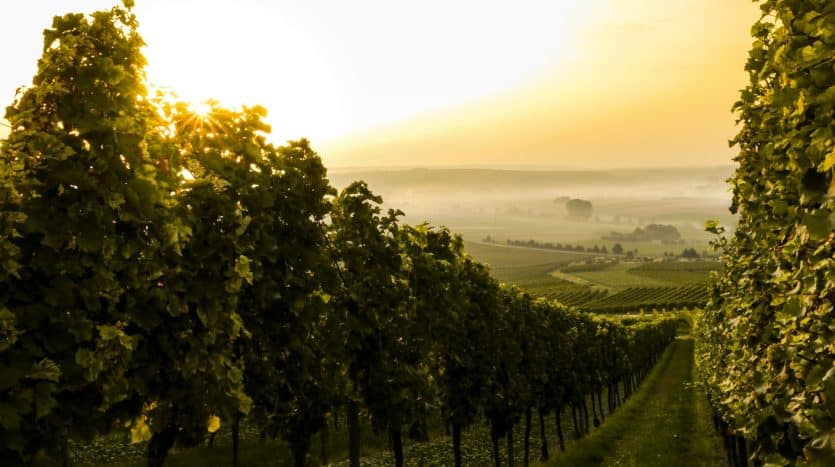Simon Reeve’s recent excellent BBC documentary on Turkey opens with him expressing his surprise at spotting vineyards lining the road while driving through the Gallipoli peninsula. He points out that people don’t associate alcohol and winemaking with a predominantly Muslim country, even though some historians believe Turkey to be the birthplace of winemaking thousands of years ago.
In his documentary, Reeve explains how marketing wine has become a challenge as alcohol advertising has recently been banned in Turkey. Touring a vineyard, he points out the contrast between the pickers. One group, local head-scarved women in traditional pantaloons, will have never touched a drop of alcohol in their lives. The other group, young bloggers from Istanbul, are likely no strangers to a swift drink on their way home from the office.
There lies the dichotomy of Turkey, home to two lifestyles seemingly coexisting happily: traditional village life contrasting with the apartments and modern villas in Turkey’s larger resort towns. The bloggers are present because the vineyard’s owners need to find creative methods to promote their wine since vineyards are now unable to advertise tastings or events.
Mor Salkim Vineyard
The Road to Mor Salkim
Turning off the main Bodrum Milas Airport road into the tranquil countryside beyond the village of Dorttepe, you’ll discover the Mor Salkim vineyard. Spread over 96,000 square meters, the vineyard grows Merlot, Syrah, Cabernet Sauvignon, and Bornova Misketi, a grape variety from nearby Izmir.
Vineyard manager Melih’s late twin brother Tahsin established the vineyard, planting the first grapes in 2014. Melih is continuing his brother’s dream of establishing the vineyard and setting up the winery.
To meet the increasing production capacity, Melih has acquired another 10,000 sqm near the village of Comlekci. Here, he’ll grow Sauvignon Blanc grapes, making up a total of around 40 tonnes of white, rose, and red wine. Slightly more than half of the grapes comprise Shiraz, the rest being mainly Merlot and Cabernet Sauvignon. Last year’s 34-tonne harvest saw 15,000 litres of wine produced, or about 20,000 bottles of wine.
A Rural Escape
Melih is the most charming of hosts and a visit to Mor Salkim vineyard is becoming a popular and regular outing for people who live in Bodrum. As much as I love the Bodrum Peninsula, it is lovely to experience nearby rural Turkey and learn about the process of making wine, as well as explore the beautiful property. On a recent trip, Melih showed some friends and me around the restored stone house. This will be extended to provide a larger tasting area and guest accommodation with stunning views over rows of vines and the distant sea.
Although Mor Salkim is a work in progress, Melih is no newcomer to wine production. His family supplied grapes to the large and well-known wine producer, Kavlikadere, so the passion runs deep. However, Mor Salkim does not restrict itself to wine production: olives are grown and used to produce oil and soap and we had an opportunity to taste the oil as well as the dried raisins produced on the estate. Needless to say, they were gorgeous.
Reasons to Visit Mor Salkim Throughout the Year:
- July to September: Visitors can watch the grape harvest.
- October, November: See the changing colours of the leaves and taste the late-coming grapes.
- November, December: Olive harvesting time and join in with the olive picking.
- January to March: Time to prune the vines and the olive trees and huddle next to the fireplace of the restored stone house.
- April, May: The blooming season for the vines and the olive trees. The surrounding fields are full of beautiful, ruby-red poppies, and the air is full of the scent of wild thyme, rosemary, and daisies.
- June: Early summer is when the grapes grow and start to change colour.
Unwilling to wait until the following season, we returned to Mor Salkim within a week of our first visit, hiring a minibus to take a few extra people who’d heard about our visit and were eager to join us. It might be tricky to advertise wine in these challenging circumstances for winemakers but word travels fast: my advice is to leave plenty of room in your vehicle, as it may well weigh far heavier on your way back!

